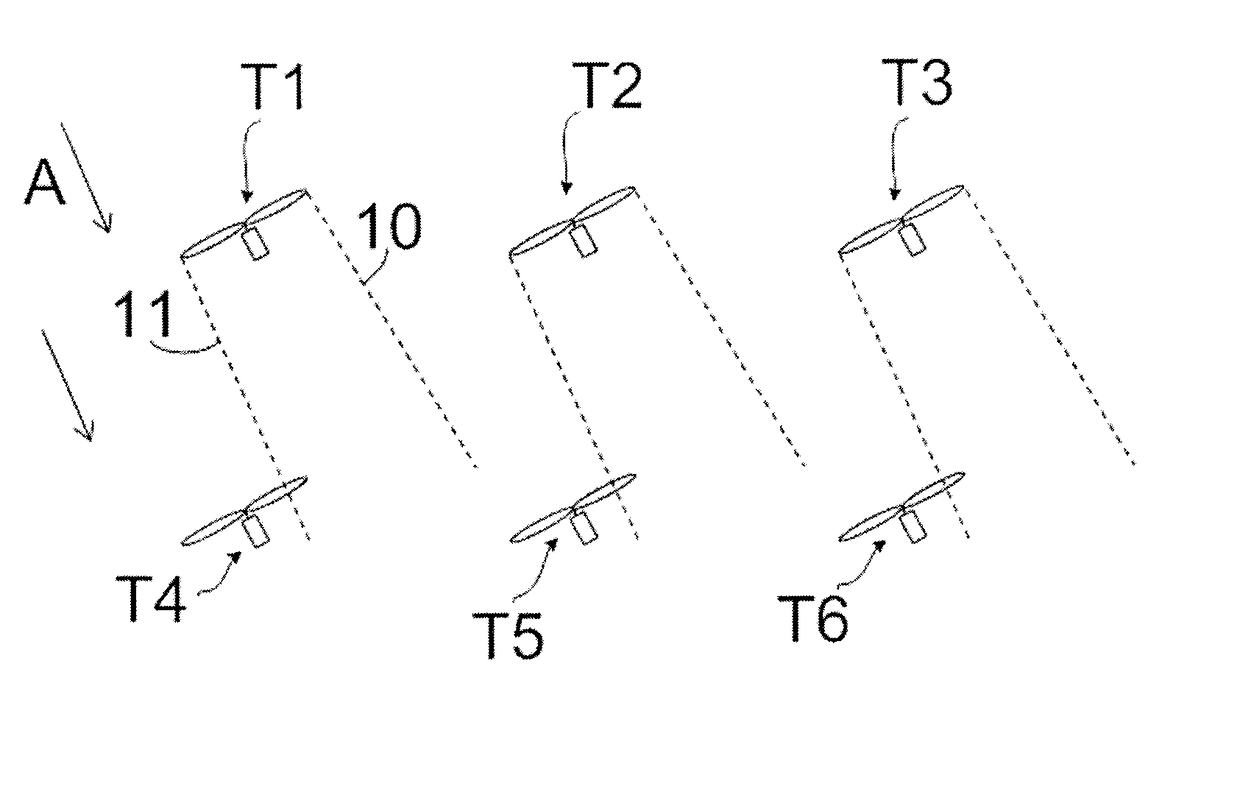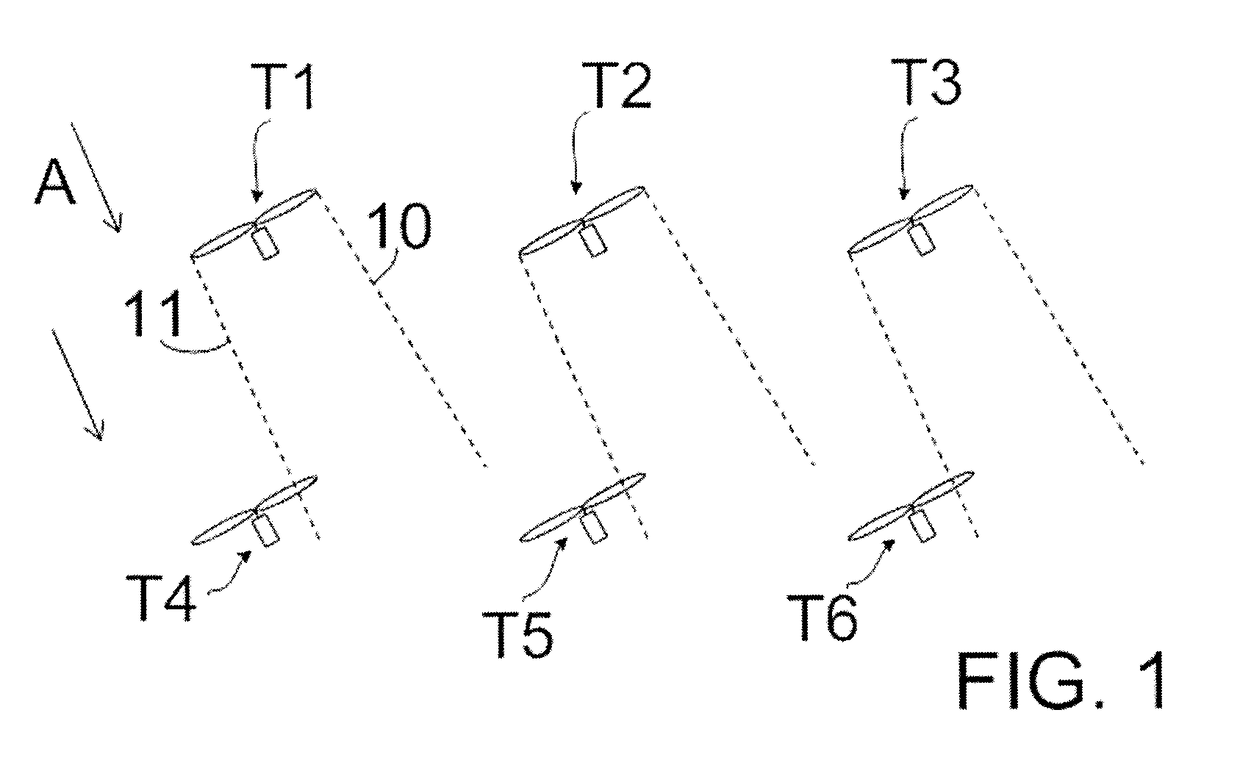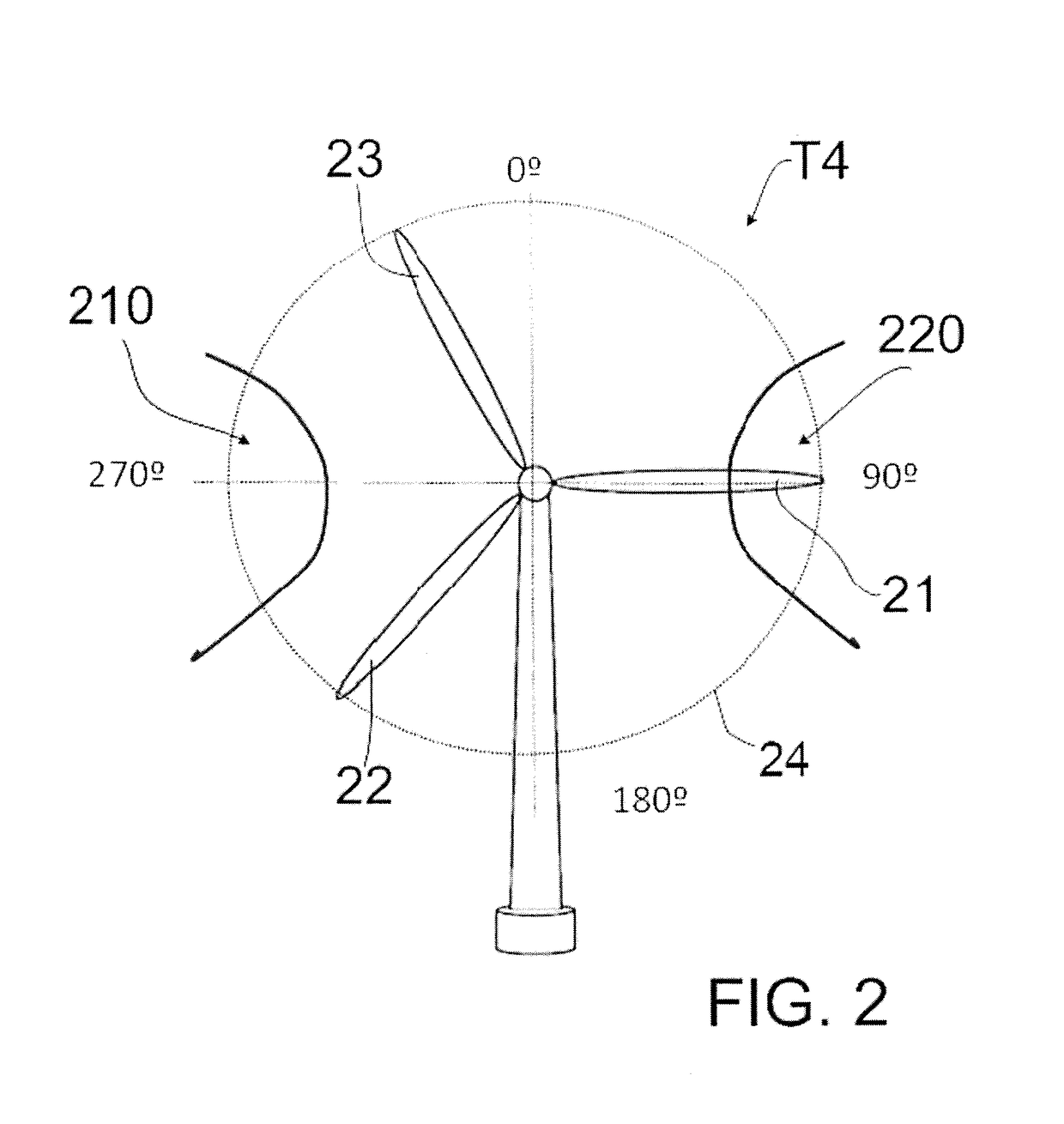Method of operating a wind farm
a wind farm and wind turbine technology, applied in the direction of wind turbines, engine control, motors, etc., can solve the problems of mainly induced unwanted effects, reduced electrical power production, and high load of this wind turbine, so as to avoid uncertainties derived from wind conditions measurement, less power, and faster and less expensive
- Summary
- Abstract
- Description
- Claims
- Application Information
AI Technical Summary
Benefits of technology
Problems solved by technology
Method used
Image
Examples
Embodiment Construction
[0025]FIG. 1 shows a schematic representation of a wind farm comprising six wind turbines T1-T6 arranged in two rows, wherein three of them T1-T3 may be located upstream and the other three T4-T6 may be located downstream. Arrow A shows the wind direction and dashed lines 10, 11 schematically show the region affected by the wake generated by each wind turbine T1-T3 located upstream. In FIG. 1, due to the wind direction A, the wake of e.g. wind turbine T1, i.e. in the region of the dashed line 11, may intersect the swept area of wind turbine T4. It should be understood that the identification of T1-T3 as being located upstream and of T4-T6 as being located downstream depends on wind direction, so that these are only relative terms, which are applicable under certain conditions (arrow A). In particular, said identification would be reversed, i.e. T1-T3 located downstream and T4-T6 located upstream, if the wind direction were also reversed.
[0026]FIG. 2 shows a front view of a wind turb...
PUM
 Login to View More
Login to View More Abstract
Description
Claims
Application Information
 Login to View More
Login to View More - R&D
- Intellectual Property
- Life Sciences
- Materials
- Tech Scout
- Unparalleled Data Quality
- Higher Quality Content
- 60% Fewer Hallucinations
Browse by: Latest US Patents, China's latest patents, Technical Efficacy Thesaurus, Application Domain, Technology Topic, Popular Technical Reports.
© 2025 PatSnap. All rights reserved.Legal|Privacy policy|Modern Slavery Act Transparency Statement|Sitemap|About US| Contact US: help@patsnap.com



